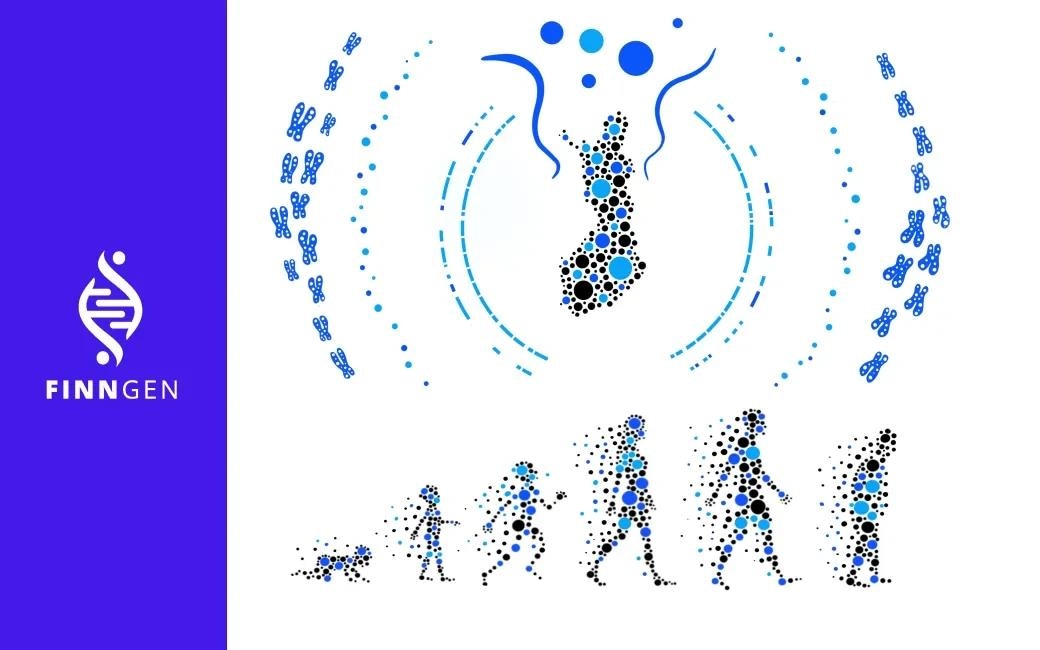
Image Credit: Alex Cagan/FinnGen.
The FinnGen study, which began in 2017, has grown to become one of the world's largest biobank-based genomic research projects. Presently, FinnGen is working to complete the development of a resource that will combine genomic information from 500,000 Finns with more than a half-century of national health registry data.
The FinnGen group presents the findings of 224,737 Finnish biobank participants. The researchers identified about 2,500 genomic areas associated with at least one of these diseases after doing extensive genetic analysis on over 1,900 diseases.
Even with less than half of the recruited 500,000 participants analyzed at this stage, this snapshot of results describes a wealth of important genetic discoveries emerging from FinnGen, including novel risk and protective variants for both common and rare diseases.”
Aarno Palotie, Scientific Director and Professor, Institute for Molecular Medicine Finland, University of Helsinki
Finland’s health registers and biobanks provide unique opportunities
For many decades, health information like medical diagnoses, procedures, and drug prescriptions have been recorded in national electronic health registers for the whole population of Finland. This provides new research opportunities.
The group first displayed in the flagship publication that the health history of study participants can be dependably composed and researched by effectively utilizing such register data. The authors accomplished this by comparing the FinnGen findings to earlier genetic findings for 15 previously well-studied common diseases, including type 2 diabetes, asthma, and Alzheimer’s disease.
In addition to validating register data, the researchers demonstrated that identifying novel risk variants in FinnGen is doable with a significantly smaller number of patients than in the largest reported disease-specific genetic studies.
The Finnish health registers containing health and medication data throughout an individual's lifetime, allowed us to rapidly and accurately identify disease cases. This accurate phenotyping, coupled with Finnish population history is a very powerful combination for novel genetic discoveries in a wide variety of diseases.”
Dr Mitja Kurki, Study First Author, University of Helsinki
Dr Mitja Kurki is also associated with the Broad Institute of MIT and Harvard.
New entry points into the disease biology
Because of Finland’s distinctive geographic location and linguistic isolation, Finns have a distinct ancestry extending back 100-150 generations to a small founding population.
As a result, despite being genetically related to Europeans, the present Finnish population contains a unique and vast range of genetic variants not commonly found elsewhere in the globe. This category includes several hundred of the 2,500 disease-linked variants described in the research.
The researchers highlight 29 variants that are found in genes that have never been related to a disease. A TNRC18 gene variant, for instance, predisposes to inflammatory bowel disease and other inflammatory conditions. Other examples include variants that increase the chance of hypothyroidism, hearing loss, or endometriosis, as well as variants that protect against arthrosis, glaucoma, or heart disease.
These findings demonstrate the power of bottlenecked populations to find entry points into the biology of common diseases through variants that are rather rare, but have a strong biological impact.”
Mark Daly, Director, Institute for Molecular Medicine Finland, University of Helsinki
Other FinnGen articles published this week include intriguing examples of findings that improve the knowledge of the genetic predictors of medication use patterns, in addition to mechanisms behind otosclerosis and respiratory infections, among other diseases. Moreover, another FinnGen research published in the same issue of Nature demonstrates that traditional inheritance models used in genomic research and clinical diagnostics may not adequately capture the variety of genetic influences observed in populations.
FinnGen is distinct in that, in addition to public funding, it is funded by 13 pharmaceutical companies and has shared scientific guidance from academic and industry partners. As a result, the FinnGen study is well positioned to address fundamental research questions that have the potential to influence pharmaceutical development and delivery.
“With all this new information, the genetic composition of the Finnish population is now unquestionably among the best known in the world. However, the impact of our study is much broader and can benefit patients everywhere,” concludes Professor Palotie.
Source:
Journal reference:
Kurki, M. I., et al. (2023) FinnGen provides genetic insights from a well-phenotyped isolated population. Nature. doi.org/10.1038/s41586-022-05473-8.